Damscus, 1230
There is no doubt that Damascus is a holy city. Even the road to it is special. It seems that the only path leading to it is the narrow path, whether you're traveling a short distance from Jerusalem to persecute Christians, or sailing all the way from Germany to seek personal glory.
Some who did not know him well might be surprised, but Fredericus von Hamburg was not a pious man. He was largely motivated by the potential for personal gain. Sure, he joined the outcry against Heinrich when Rome was sacked, but that was largely because the will of the Diet had been circumvented, and Franconia put in danger as a result. Yes, he did join in calling for the first crusade, but it would mean that many of the rival generals would be sent half the world away. It only left him and von Kastilien, but when von Kastilien was named Duke, and with western Franconia still generally quiet, he gladly joined the second crusade, for there were new lands, enemies, and titles in the Outremer.
But that was before the journey on the Road was taken. I cannot say exactly what it is. Maybe it's seeing the masses of people abandon everything they have, except a cross and a sword, and march happily into danger. Maybe it's being stuck for a long time on the same boat as Conrad Salier, who would only talk of religious matters, and would only leave you alone if you were reading the Bible. Maybe Jesus spoke to him on the way. Whatever it was, one thing was clear, von Hamburg was a different man. When he joined Leopold in calling for a direct attack on the Mongols, he justified it by saying that it was the only way to protect the Christians in the city. The difference was, this time he meant it.
But it was not over yet. There was one more curve in the Road.
This was it, the final battle. Sir Fredericus the Brave vs. Sir Medhat the Not-Quite-So-Brave-As-Sir-Fredericus. Conrad Salier, Karl Zirn, Jan von Hamburg, and Elberhard were also there, as were 1500 other Germans, two spies who sabotaged the gates, and a friendly and largely Christian population. Less than 1000 Saracens stood in the way, largely militia and horse archers, with a few catapults.
There was a question of who would be the first to enter the city. It would certainly be the position of honor, but it was highly risky. He who advanced first would come under prolonged missile fire, and would have to face the enemy frontally immediately upon entering the city. Though the crusade had come far and been through much, it was still possible to die here just as anywhere else. Fredericus was determined to ignore the ceremonial significance of the battle, and treat it with proper tactics. He did not want to waste any lives that were not expendable. Well, that's not to say that some are expendable, it's just that, well, some lives like being expended. As such, the religious fanatics got the honor of storming the gate.
They quickly secured the immediate area of the gate, attacking nearby Saracen units, and scaling the walls to kill the archers and javelinmen. The other troops followed at a normal pace. A large number of Saracens came down the main street, directly from the city square. The fanatics blocking that route were soon no longer able to hold, and the regular troops moved in, with about half of the enemy army attempting to come down that street.
While there were some skirmishes on the side, and some units went around, most of the early fighting occurred on that street. At first a regiment of crusader sergeants held the line, and when they became exhausted, they were replaced by militia armed with halberds. Unlike the sergeants, they went on the offensive, and being attacked by lightly armored horses and men, did very well with their fearsome weapons.
Both regiments took their turn, and were eventually replaced by armored sergeants, as other units made it along the side streets to envelop what remained of the enemy. About half of the enemy army remained, and they concentrated at the city center. The enemy general was still there, a small number of horse archers, much of the remaining militia, and three batteries of catapults. The presence of catapults was particularly worrisome.
Because of the danger posed by the catapults, all the remaining units were ordered to charge up the street and immediately engage the enemy.
The enemy infantry was partially encircled, and since they had nowhere to retreat, all that remained to do was to wait for them to be cut down. Strangely enough, the enemy general, along with his numerous and heavily armored bodyguard, merely looked on.
After dispatching the rest of the enemy army, the German troops surrounded the enemy general.
One of the halberdier regiments carefully closed in on the general's bodyguard, in formation, with their halberds in a defensive position. They came close enough to initiate communication.
Soon, one of the halberdiers reported back to Fredericus. Apparently, the enemy general offered to surrender the city. This was the response:
"Now!? Now he wants to surrender? After he watched every last one of his men get killed. Right there, right in front of him. Every last one. Even the last one died while trying to stab with his spear. And now he wants to surrender? Does he also wish to return to Egypt on a comfortable carriage, with all the wine he can drink, served by 50 beautiful women? Does he also..."
By this point, the halberdier had already returned to his formation, and they attacked, being quickly followed by the surrounding infantry.
Some of the general's bodyguard attempted to escape the infantry, but the entire German army collapsed to the city center.
The city was spared any looting and destruction. The Road has come to an end.





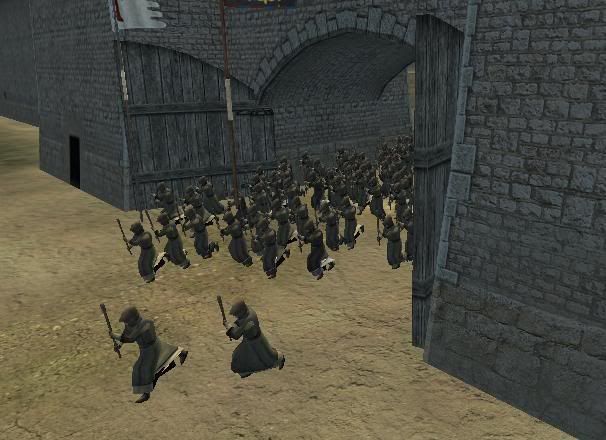
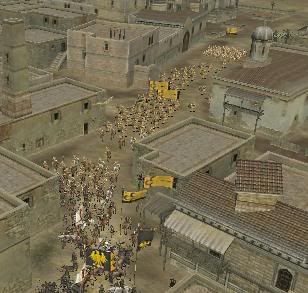
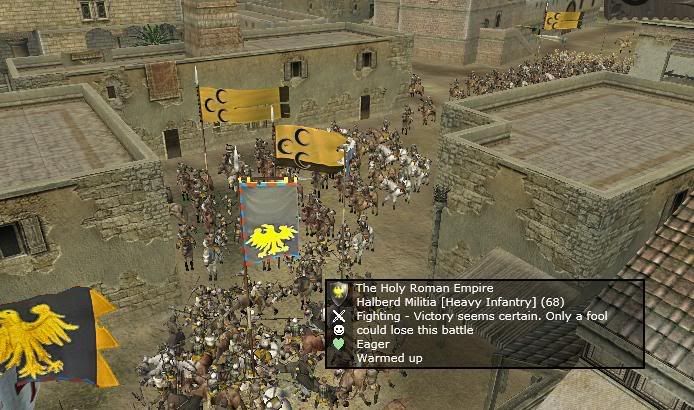
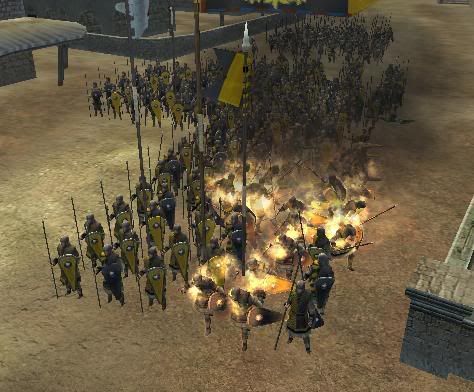
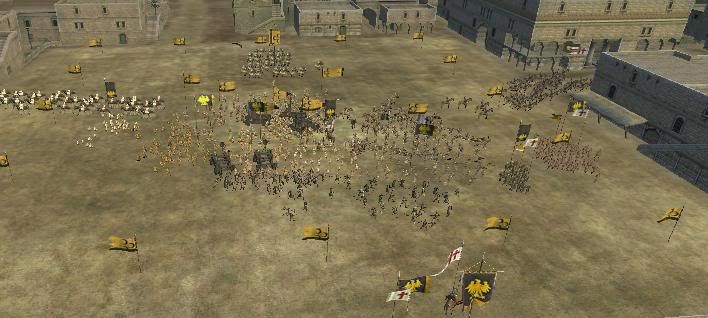
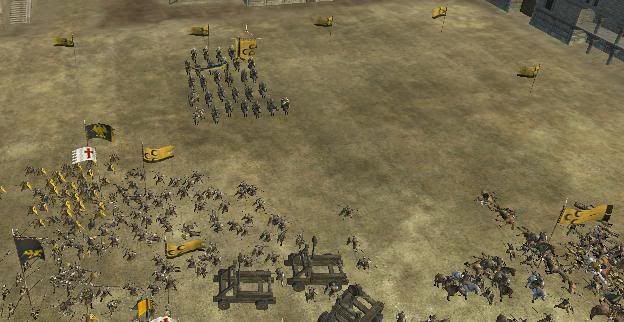
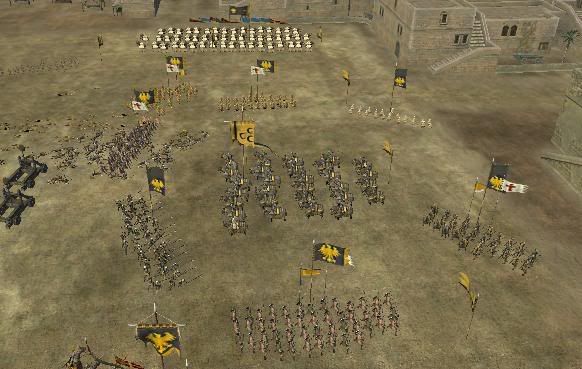
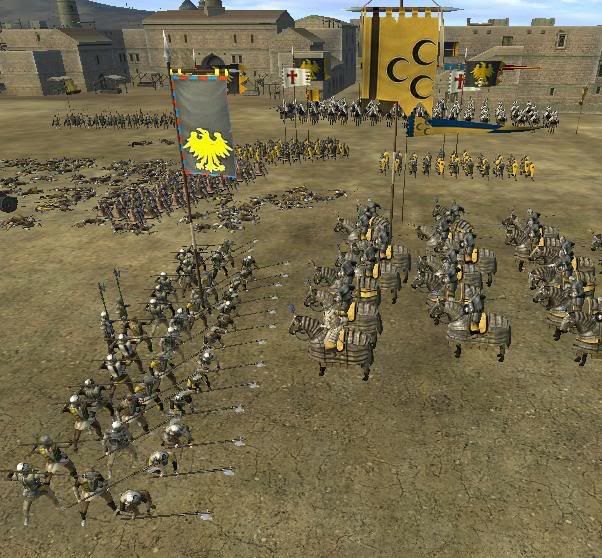
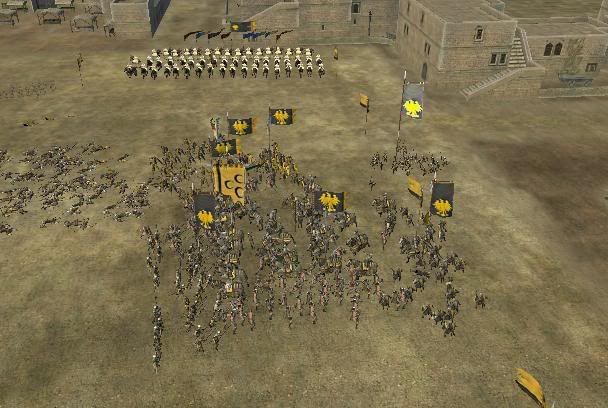
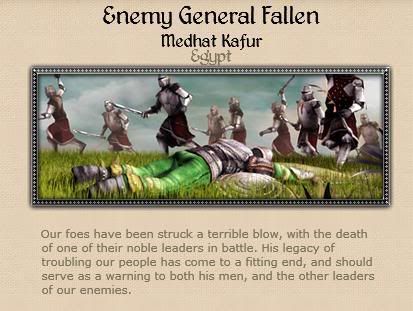
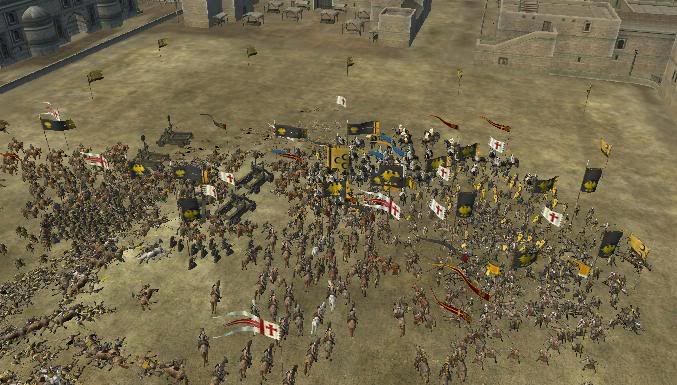
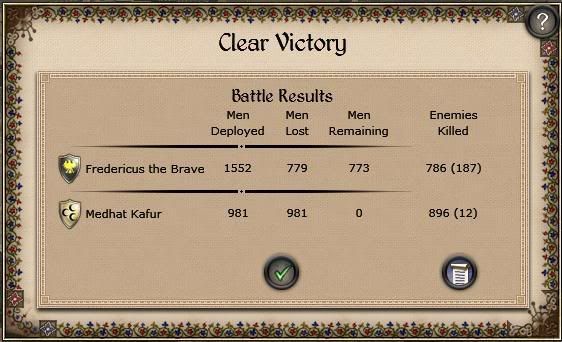
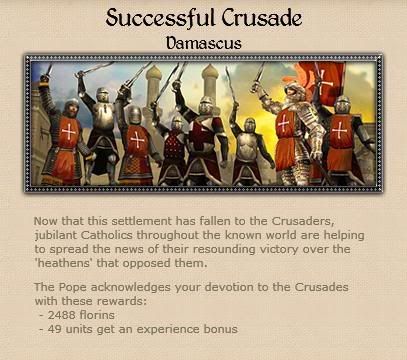

 Reply With Quote
Reply With Quote
Bookmarks